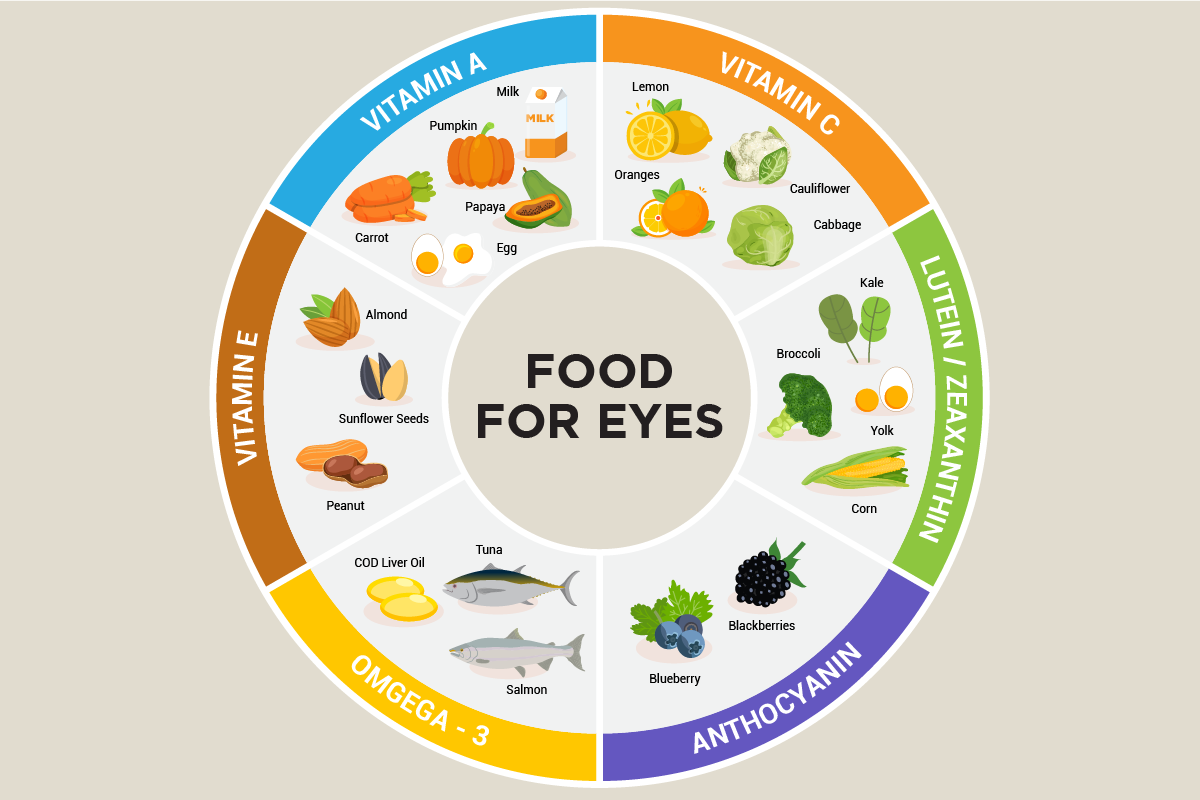Know What’s Best For Your Eyes
Natural vitamins can improve your eyesight. But first you have to find out which vitamins are healthy for your eyes so you will eat more foods containing them. Good vision is essential for our daily activities and overall well-being. While regular eye check-ups and maintaining proper eye care habits are crucial, incorporating natural vitamins into your diet can significantly contribute to maintaining healthy eyes. In this article, we will explore some essential vitamins that promote eye health and discuss their benefits.

Maintaining healthy eyes is essential for a high quality of life, and incorporating natural vitamins into your diet is a proactive way to support eye health. Vitamins A, C, E, D, and omega-3 fatty acids play vital roles in preventing eye conditions, reducing the risk of age-related degeneration, and promoting overall eye health. Remember to consult with a healthcare professional or an eye specialist to ensure your specific needs are met. By adopting a balanced diet rich in these vitamins, you can take significant steps towards preserving your precious eyesight for years to come.

Vitamin A is essential for maintaining proper vision, particularly in low-light conditions. It helps the retina function effectively, improving night vision and preventing dry eyes. Foods rich in vitamin A include carrots, sweet potatoes, spinach, kale, eggs, and liver. Incorporating these into your diet can provide your body with the necessary vitamin A to support your eye health.
Vitamin C or L-ascorbic acid: Vitamin C is a powerful antioxidant that helps protect the eyes against damage from free radicals, which can lead to age-related macular degeneration (AMD) and cataracts. Citrus fruits, strawberries, bell peppers, broccoli, and Brussels sprouts are excellent sources of vitamin C. Consuming these foods regularly can aid in maintaining healthy eyes and reducing the risk of eye-related issues.
Lutein and Zeaxanthin are essential nutrients for maintaining healthy eyes. Their ability to protect against blue light, neutralize free radicals, increase macular pigment density, reduce inflammation, and enhance contrast sensitivity contribute to overall eye health and help reduce the risk of age-related eye conditions.
Anthocyanins are commonly found in deeply colored fruits and vegetables such as blueberries, blackberries, cherries, grapes, and red cabbage. They can give antioxidant protection, blood vessel support, anti-inflammatory effects, retinal protection, and improved night vision.
Omerage 3 Fatty Acids are beneficial for the eyes, particularly in preventing dry eyes and reducing the risk of macular degeneration. Foods rich in omega-3 fatty acids include fatty fish (salmon, tuna, sardines), flaxseeds, chia seeds, and walnuts. Adding these foods to your diet can support optimal eye health and reduce the risk of eye-related conditions.
Vitamin E is another antioxidant that helps protect the eyes from oxidative stress and age-related damage. It helps combat harmful molecules and reduces the risk of developing cataracts and AMD. Foods rich in vitamin E include nuts (such as almonds and sunflower seeds), spinach, broccoli, and fortified cereals. By incorporating these foods into your diet, you can support your eye health and overall well-being.
